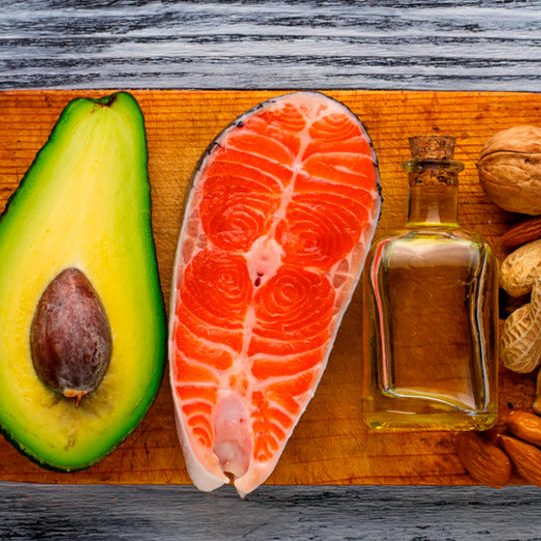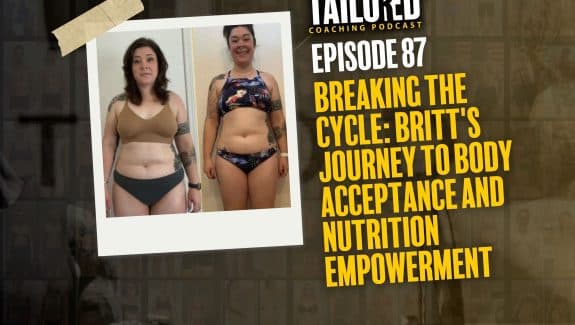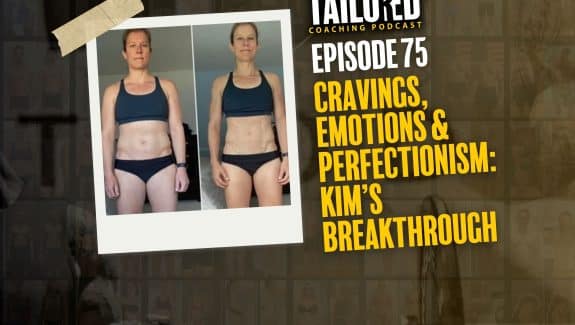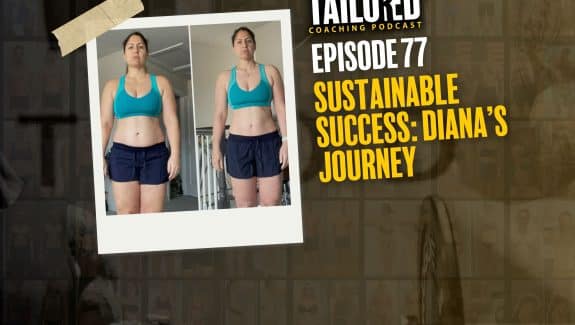A recent study showed that keto doesn’t work like many people once thought it did…

But before any Ketogenic readers see this and bash me with hate mail, keep reading.
Here’s the study breakdown:
→ 2 groups of men
→ Both groups used the same resistance training program
→ Both groups were in a hyperenergetic state (calorie surplus)
→ Keto group lost more visceral adipose tissue (aka fat)
→ Keto group did not build ANY muscle, other group did, despite being in a calorie surplus (known as the way to build muscle)
So what does this actually tell us about keto dieting?
It tells us quite a bit, actually.
1.) Keto Burns Fat.
It tells us that ketogenic dieting CAN help lose body weight and fat mass. It’s been shown in experience and now in studies, too.
But in this study as you saw, it was visceral adipose tissue. What exactly does that mean?
It means that it’s beneath the skin/muscle, around the organs internally.
This tells us that it’s more of a health and metabolic condition/measurement, rather than directly subcutaneous fat.
Subcutaneous fat is the fat over the muscle, beneath the skin, which we hate to see and want to lose.
So losing visceral adipose tissue means in our internal organs, which is 100% a good thing. Having fat directly on your organs, especially in your abdominal region, is NOT a good thing. We want that gone for health and longevity.
Losing it may “shrink” your stomach, but might not actually get you shredded or lean enough to visibly see abs.
Doesn’t mean keto won’t take you there, eventually, though.

2.) Keto Isn’t Ideal For Muscle.
It tells us that keto is not that great for building muscle.
This is slapping a lot of people in the face because there are so many people out there claiming that keto WILL still build muscle, because it’s all up to training and being in a caloric surplus.
Well… in this study, both groups were in a caloric surplus AND resistance training.
But the non-keto dieting group was the only group that built any muscle.
Does this mean you absolutely cannot build muscle with keto?
Not necessarily, but it absolutely means it may not be the best option there is to build muscle.
“Well what about fat loss? I don’t care about more muscle!”
Well, muscle = better fat loss in 99% of cases.
Because muscle burns more calories while at rest than fat does, or any other human tissue for that matter.
Muscle also increases metabolic rate.
Muscle will even fight off more diseases and ailments than most other tissues or functions of the body, too.
Muscle is a hormonal primer, too. This means that when you have more muscle tissue, almost every hormone in your body will be functioning at a higher rate. This is obviously a major benefit for burning fat long term.
Muscle will help performance and strength, a lot. This is SO unbelievably important for fat loss because if you cannot perform hard in the gym, how are you going to burn more calories from the gym??
Which is something that could’ve actually been the direct cause of no muscle being built by the keto group…
Was it lack of carbs? Or was it because their performance suffered?
More than likely it’s a cause of both, because carbs = performance fuel.
Muscle is VERY important for health, longevity, metabolic capacity, and many more health measurements.
I could keep going on but I’ll stop here as I think I made my point clear, muscle is important for all of us no matter what our goals are. And what this study has shown us, was that despite calories and a smart resistance training program – keto didn’t help muscle mass growth. Below is what they used for training:
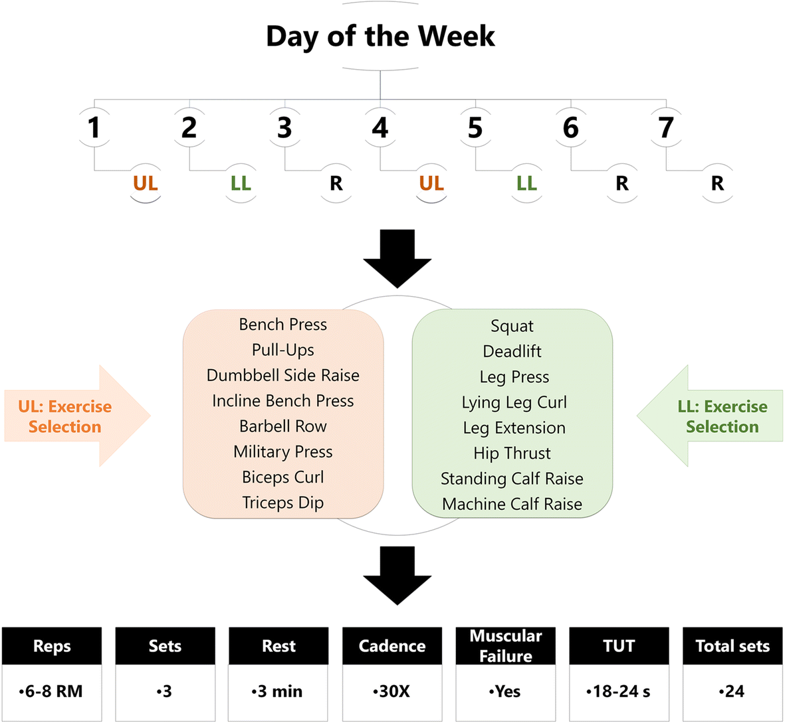
3.) Adherence MUST Be Considered.
Something that would’ve been interesting to me, would have been if they actually recorded adherence on a scale.
Because in my experience as well as many of my colleagues, that’s the biggest issue with a ketogenic diet.
Simply following it, consistently.
Social events, alcoholic drinks… even produce, you need to watch our for twice as much.
And as we know, adherence is the #1 priority when it comes to fat loss, muscle gain, or any physical goal and routine. Because if you can’t do it, consistently… it’s not the best approach, for you.
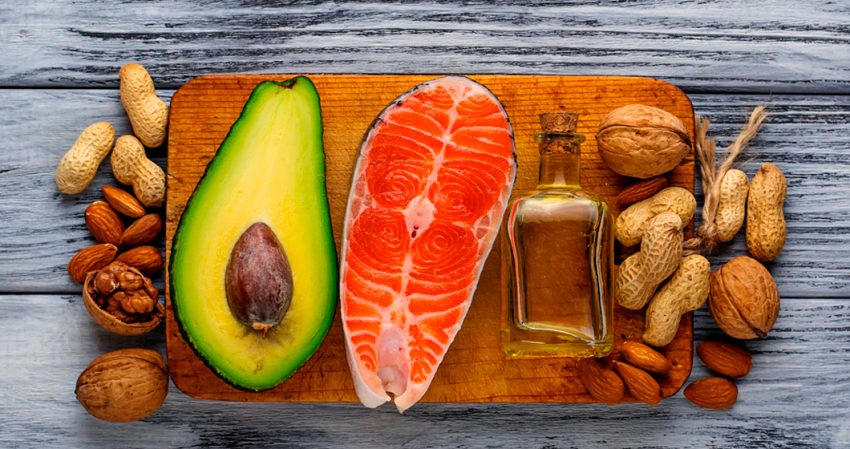
(This is your diet on keto… Avocados, nuts, oils, butter, and some fatty meats like bacon, steak and fish – but not too much, because you can’t exceed protein intake requirements. Sounds good now, but can you do it year-round…?)
4.) Keto Leads To Better Health… Maybe?
Keto may be an excellent approach for health and longevity or in sedentary individuals.
If you’re sedentary and/or not training, then both strength and muscle both wont really be built. Which in of itself is not healthy, because we know both of those allow us to live longer.
But the point is, keto supports a more sedentary lifestyle because you’re in much less need of glucose/glycogen.
Keto may also be great for longevity, because as the study showed – it reduced the visceral adipose tissue, which is a great health marker. And although they didn’t draw blood, flaw in the study in my opinion, this can too be a good measurement for health just as blood can be.
So if you’re suffering from a metabolic or autoimmune disease, keto may be a great approach. Because it HAS been studied and proven in that population. But I’m no doctor and that’s out of my scope of practice, I specialize in performance and body transformation.
5.) Improves Insulin Sensitivity.
This wasn’t tracked in the study unfortunately but along with the health markers and metabolic benefits shown with the fat mass reduction in the subjects, internally, we can somewhat prove that it may help this health marker as well.
This is why I do believe in a keto, or just a generally lower carb and higher fat, approach periodically within a client’s protocol. Because if we can utilize carbs to build muscle, improve performance, and adhere better – we win. But at a certain point if we take that to an extreme, causing a bit of insulin resistance, OR we have a client who starts with us in an insulin resistance state… we need to create insulin sensitivity because carbs are not going to work as well as they could, until the insulin has returned to a healthier and more sensitive state.
So how do we utilize this information?
Testing blood glucose with a glucometer every 1-4 weeks, depending on your fat loss timeline. When testing it, you want to see anywhere between a 75-85 reading ideally. When it creeps up passed 90 and especially at or above 100, you know your insulin sensitivity is diminishing and it’s time to reset.
To reset this, you’d simply create a deficit or switch the caloric composition (macros) to a more fat dominant approach. This helps to bring insulin levels back to a healthier range – could take only a week and for some much longer, 4-6 weeks. After you get that insulin reset, you’d return to a more carb dominant approach because the carbs would be working for you, to build muscle and perform at a higher level.
However, most recent research suggests that insulin sensitivity is far less important than once believed and it takes quite a lot in order to be truly insulin resistant. We also have to remember that insulin is a driver of muscle growth, since it’s in control of energy storage as well as growth factors that lead to more muscle being able to be built. I talk a lot about this in my Science Based Carb-Cycling article.
The main take home point here is simple… it DOES improve insulin sensitivity and at times, that can be important. But you can also improve insulin sensitivity by losing body fat, staying in a calorie deficit, strength training, and generally being health. So if adherence is going to be low with a keto or low carb diet, you’re better off choosing a different path to a calorie deficit, to lose fat, and achieve insulin sensitivity.
6.) What About Brain Health?

This wasn’t in the study but I know it’ll be asked in response to this article, so I’m going to declare it as #5.
Many people have seen great focus and cognition benefits from going keto and it’s been documented that the brain prefers ketones (the fuel produced from fat) as it’s fuel source.
Which is contradicting to what science has shown before, being that glucose is what the brain runs off of. So which is it? Carbs or fats for brain health and cognition?
Both.
The body is a very adaptive thing and it can run off either.
There’s no science to prove this, yet, but my guess and what I’ve heard from many other Nutritionist and Science Based Practitioners, is that our bodies WANT to be metabolically flexible – to an certain extent. I do not think that our body will transform physically as well if you’re constantly trying to shift from ketosis to a glucose dominant state, but I do believe that periodically throughout a years length in time it may be beneficial to tip toe back and forth between the two.
This is why many people feel AMAZING when they first tap into ketosis, but then eventually the benefits and feelings they were experiencing start to slowly fade away until they’re pretty negligible.
Then they eat some carbs and BOOM! They feel like Clark Kent turning into Superman for their workouts. Which, again, is how they felt when first tapping into ketosis.
This is what’s funny about the brain debate… people literally argue back and forth. The keto fans showing different studies to show that the brain wants ketones more than any other substrate. Then the carb lovers fight back with different studies showing that the brain truly prioritizes glucose as fuel.
The debate will never end, it’s hilarious. In my opinion, a great coach see’s the benefits in both approaches and understands how to utilize them both in different populations and also within the same populations. Meaning that a great coach will use keto with someone who will thrive on it and adhere well to it and will also use it on someone who may actually prefer carbs most, but periodically needs a higher fat approach to be implemented and periodized into their fat loss phase.
Fat Loss & The Keto-Diet – Conclusion:
→ Keto isn’t bad and it does indeed work for both health and fat loss.
→ Keto isn’t the best approach for building muscle, which may lead us to believe (highly likely) that it’s also not the best for strength.
→ Keto isn’t the best approach for performance, either. Because as we know, based on science, the muscular system prefers carbs (glucose/glycogen) when it comes to resistance training (specifically glycogen dominant exercises/routines such as Bodybuilding, Endurance, CrossFit, etc.)
→ Keto has been shown to help improve many health markers for longevity and disease prevention (more so rehabilitation).
→ Keto may be a great thing to implement into your diet for periods of time throughout the year. Periodizing your nutrition like this can improve insulin sensitivity and metabolic flexibility, which will help your physique.
→ Whether or not keto works is irrelevant if adherence isn’t taken into consideration. In fact, science and studies don’t mean anything if you can’t adhere to what they show us! So always remember, what YOU enjoy, thrive on, and can stick to consistently IS the best approach. Period.
Reference for this study: https://jissn.biomedcentral.com/articles/10.1186/s12970-018-0236-9

